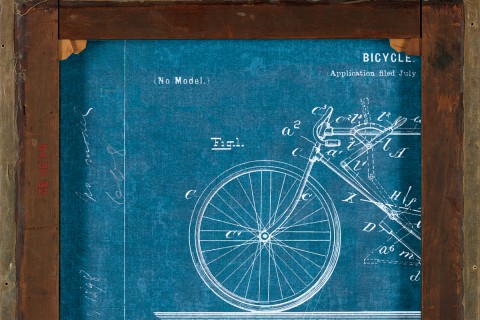For shame
In the Bible, the ambiguity of shame is unmistakable.
Remember Gomer Pyle, the hapless and saintly TV marine? His philosophical lexicon was limited, but it included two all-purpose expressions: Surprise, surprise, surprise! and Shame, shame, shame! The first of these expressions, along with Golly! and Shazam! expressed Gomer’s childlike sense of wonder. He was a holy fool, perpetually delighted by life’s small and great prodigies. Yet it was with Shame, shame, shame! that the profounder notes of his personality emerged: he was not afraid to pronounce judgment when it was called for, and even to cry doom.
Thus Gomer Pyle embodied the principle that German Lutheran theologian Rudolf Otto established in his 1917 classic, The Idea of the Holy: that the sense of doom is related to the sense of wonder and that awareness of divine mercy heightens rather than dilutes the pangs of conscience.
Last time we watched Gomer Pyle, USMC (we have all the seasons on DVD), it struck me that Gomer spoke of shame rather than of guilt. It would have been unidiomatic, and fairly absurd, for Gomer to cry Guilt, guilt, guilt! for guilt is only God’s to judge. Though we speak of establishing guilt before the law, our criminal justice system is wisely restrained from peering into consciences and reverse-engineering human souls.
Shame, however, is an even more elusive and mercurial word than guilt. It serves as an exclamation, as a substantive, as a transitive verb. It describes a phenomenon that is at once physiological, affective and cognitive: a burning and reddening of the face (hence the Latin erubesco) triggered by the awareness of being caught out or appearing wrong in the sight of real or imagined others. The phenomenon is a social one too: we are never ashamed alone, but only before the eyes of a teacher, parent, friend, rival or alter ego. The sense of shame proves that we are social animals whose blood and nerves unavoidably betray our connection to other people.
On one level, shame is a mechanism for internalizing social codes, suitable for deterring undesirable behavior but subject to misuse. On another level, shame signals the dignity of the human person, telling of our freedom to embrace or reject our relationship to God.
In the Bible, the ambiguity of shame is unmistakable. Consider Psalm 25: “To thee, O Lord, I lift up my soul. / O my God, in thee I trust, let me not be put to shame; let not my enemies exult over me. / Yea, let none that wait for thee be put to shame; let them be ashamed who are wantonly treacherous.” In other words, don’t let my enemies destroy my reputation; and please, while you are at it, scatter them in shame, for they are worshipers of idols whose very name is shame.
From a different angle, shame is a quasi-virtue. Para doxically, it is the shameless person who commits the shameful act. To be naked and unashamed is a lost privilege of paradise; to be unashamed before God is insane. To be ashamed, as George MacDonald puts it, “is a holy and blessed thing. Shame is a thing to shame only those who want to appear, not those who want to be.” Yet to be ashamed about losing one’s job or overdressing for a dinner party is morally dubious. And to be ashamed of the gospel, St. Paul tells us, is to reject the salvation that God was not ashamed to offer from the cross.
Guilt, on the other hand, means just what it says: culpability. Much has been made of this contrast, and there is a cliché that opposes guilt cultures to shame cultures, but I’m inclined to consider shame and guilt, for all their differences, as complementary.
Perhaps I have said or done something embarrassing. I wish it could be undone. I pray, in effect: Lord, don’t you have a time machine I could borrow? It would take but a moment to undo that small thing and no one need be the wiser. But the prayer is refused. Eventually the shame fades away on its own, and something else takes its place: the awareness of a deeper guilt, so far below the surface that no reproach attaches to it; no one knows about it, and no one would think less of me for it, for it is the human condition.
Shame feels like a sharp pang or sting, but guilt feels like a heavy weight. Shame makes me wish I hadn’t committed a solecism, but guilt makes me think, “Ah, that’s who I am.” I don’t ask for a time machine—the guilt is too intertwined with the good things in my life; it sits too close to the bone, too close to the fall of man itself. I couldn’t undo it without undoing myself. Only God can set it right.





